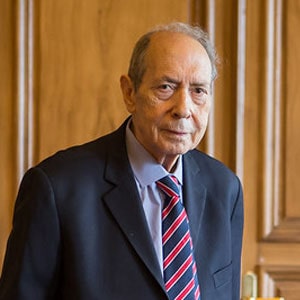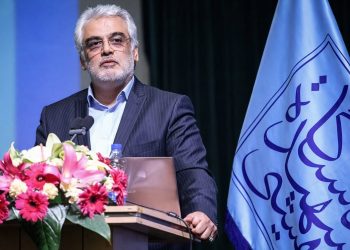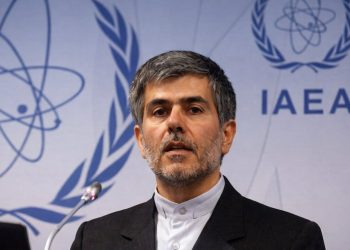Saad Alfarargi – United Nations Special Rapporteur on the right to development
Ladies and gentlemen, Excellencies,
I am pleased to participate in today’s conference on the future of peace and human rights in West Asia in my capacity as Special Rapporteur on the right to development.
The right to development and the future of peace and human rights are closely intertwined. The realization of all human rights, including the right to development, requires the fundamental conditions of peace and security. But the opposite is also true. To ensure peace, the realization of the right to development – and, through it, the integrated realization of all human rights – is essential. There cannot be prospects of peace without respect for human rights, including the right to development. It is no coincidence that the 2030 Agenda for Sustainable Development acknowledges that “There can be no sustainable development without peace and no peace without sustainable development”, and that it recognizes “the need to build peaceful, just and inclusive societies that provide equal access to justice and that are based on respect for human rights (including the right to development)”. This is also reflected in the 2030 Agenda’s 17 Sustainable Development Goals, which “seek to realize the human rights of all and to achieve gender equality and the empowerment of all women and girls”.
Let me recall that my mandate has been established with the objective of contributing to the promotion, protection and fulfilment of the right to development in the context of the implementation of the 2030 Agenda for Sustainable Development and other internationally agreed outcomes of 2015, including the Sendai Framework for Disaster Risk Reduction (2015–2030), the Addis Ababa Action Agenda of the Third International Conference on Financing for Development and the Paris Agreement, and, to this effect, to engage with Member States and other stakeholders.
The UN Declaration on the Right to Development defines development as “a comprehensive economic, social, cultural and political process, which is aimed at the constant improvement of the well-being of the entire population and of all individuals on the basis of their active, free and meaningful participation in development and in the fair distribution of benefits resulting therefrom”.
I would like to emphasize that the Declaration recognizes the right to development as an inalienable human right. This right is to be understood as a composite right wherein all the rights, that is, economic, social, cultural, civil and political rights, are realized together. It implies the realization of all human rights together in a manner that takes into account their effects on each other, both at a particular time and over a period of time. It thus provides us with an integrated framework to address the implementation of all human rights within a comprehensive process aimed at improving the well-being of all, which is crucial to ensure prospects of peace and development, and remains essential also in post-conflict reconstruction phases to re-establish and maintain such prospects. The right to development requires that States co-operate with each other in ensuring development and eliminating obstacles to development and in promoting the establishment, maintenance and strengthening of international peace and security.
In my reports, I have emphasized that the particular value of the right to development is that it directs the focus to the well-being of people. Only when people have access to education, when they are allowed to work in a profession of their choice, when they are not discriminated against, when they have access to financial services, health care and housing, when they are able to express their views freely and fully and fairly participate in shaping the policies that govern their lives, are they able to lead lives to their full potential.
I would like to emphasize that ensuring inclusive and participatory processes is of utmost importance from the perspective of the right to development. Participation is the very basis for assessing the interests of rights holders and ensuring that those interests are met. Let me recall that the UN Declaration on the Right to Development calls upon States to encourage popular participation in all spheres as an important factor in development and in the full realization of all human rights. In my report containing guidelines and recommendations on the practical implementation of the right to development, I have emphasized that fulfilling the right to development must involve empowering persons, both individually and collectively, to decide their own development priorities and their preferred methods of reaching those priorities.
This is particularly important in the case of women and girls, who continue to face enormous obstacles to the realization of the right to development, and who pay the highest toll in case of conflicts and are side-lined in post-conflict reconstruction efforts. I would thus like to focus the rest of my intervention on them.
The Declaration on the Right to Development calls upon States to take all necessary measures for the realization of the right to development and to ensure equality of opportunity for all in their access to basic resources, education, health services, food, housing, employment and fair distribution of income. Now, women and girls face inequalities and structural barriers across all aspects of their lives. This includes prejudices, customs and norms that sustain gender-based discrimination; limited access to income-generating opportunities, social protection, education and health care; gender-based violence; the disproportionate burden of care responsibilities and the lack of control over economic resources, among other facets. I cannot overemphasize that if structural inequalities and gaps persist that deny women’s and girls’ right to development, the prospects of peace are also at risk. Moreover, there cannot be authentic reconstruction if entrenched inequality patterns are not addressed.
The Declaration on the Right to Development calls upon States specifically to undertake effective measures to ensure that women have an active role in the development process (art. 8). Women’s and girls’ participation in the formulation, implementation, monitoring and evaluation of development policies and plans is essential to ensure that those address their needs in an effective, legitimate and sustainable way.
In my reports, I have recommended that States should promote quality representation of women in decision-making and should ensure that women participate in evaluating and monitoring development plans and strategies. Often this will require temporary special measures, such as quotas for women in political representation.
States should also promote human rights education that emphasizes gender-sensitivity and non-discrimination at all levels. In particular, as the CEDAW Convention underlines, States need to take measures “to modify the social and cultural patterns of conduct of men and women, with a view to achieving the elimination of prejudices and customary and all other practices which are based on the idea of the inferiority or the superiority of either of the sexes or on stereotyped roles for men and women” (CEDAW art. 5).
I have also highlighted how important it is that States put in place gender equality and social protection policies. In particular, I have highlighted that special attention should be devoted to unpaid care work, by devising economic policies and national accounting methods that enable the redistribution of care work and address the disproportionate impact that this kind of work has on women’s development. States should recognize and formalize care work by remunerating those who take on the caring function and providing proper training in that regard. Moreover, I have recommended that States should promote human rights-driven budgeting, including budgeting that specifically promotes gender equality and other forms of equality. Furthermore, in my reports I have pointed out that States should recognize and protect the work of women human rights defenders and ensure an enabling environment for their activism to realize the right to development.
Finally, I would like to emphasize that it is only possible to give effect to the right to development of women and girls if there are adequate accountability mechanisms and remedies in cases their rights are violated. Regrettably, too often this is not the case. Especially in situations of crisis, such as conflicts, women and girls are frequently confronted with widespread impunity for violations of their rights. Without accountability for human rights violations, including the right to development, there cannot be any prospects for peace and development.
I thank you for your attention and I am looking forward to the discussion.






